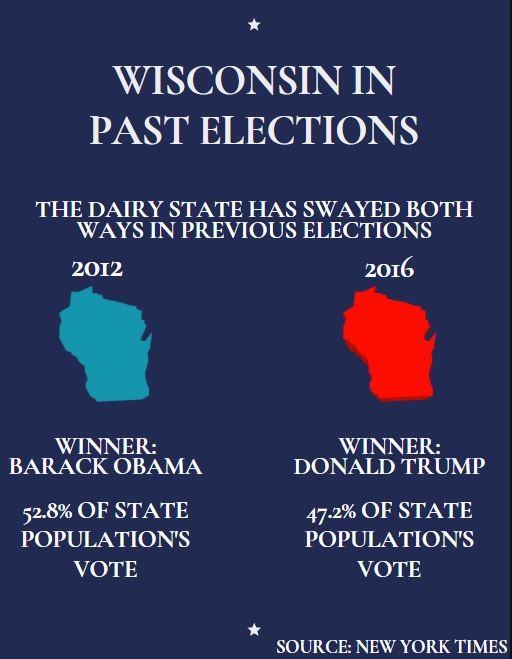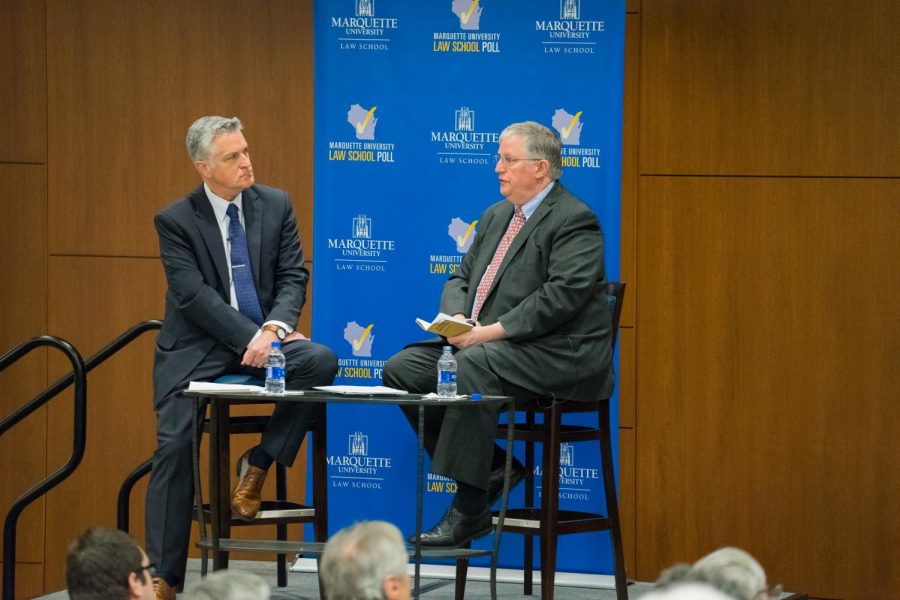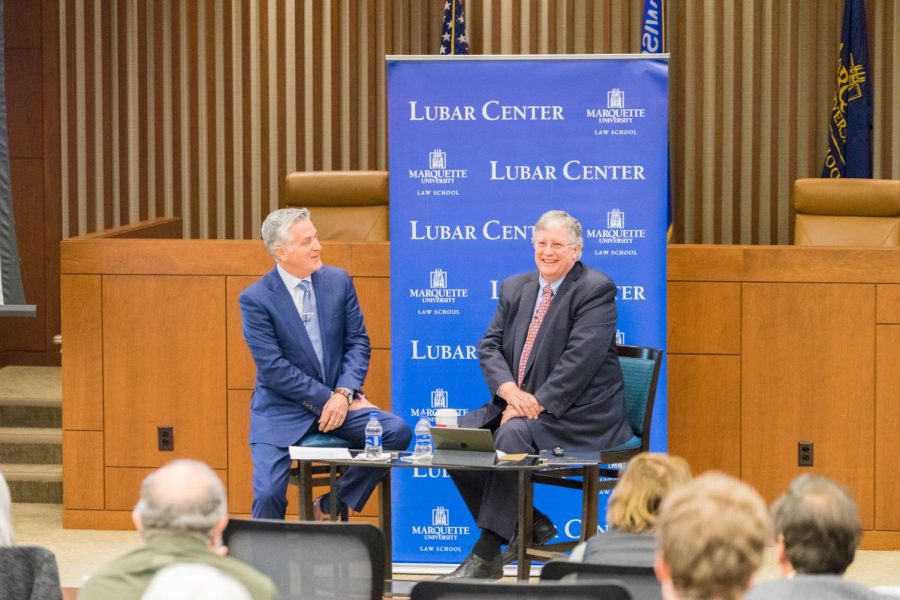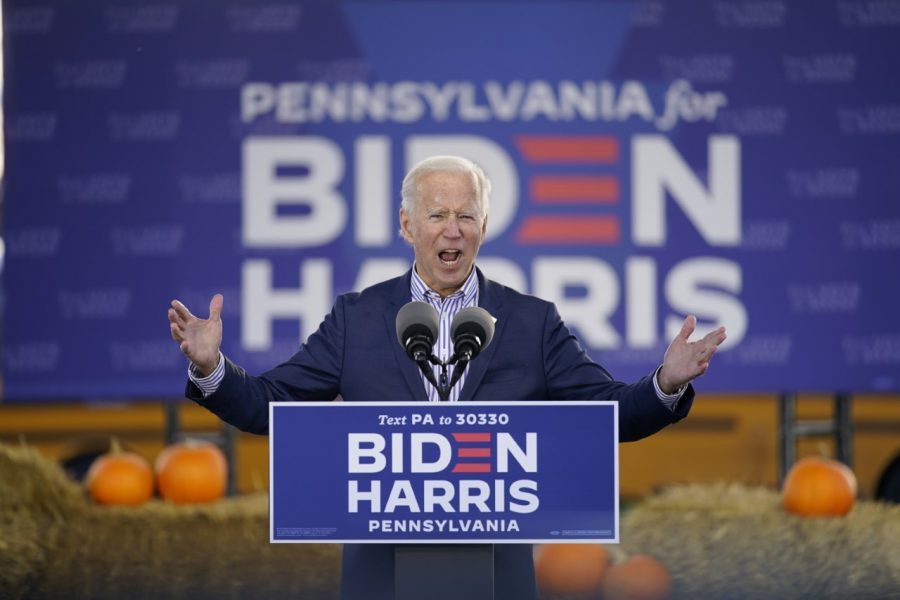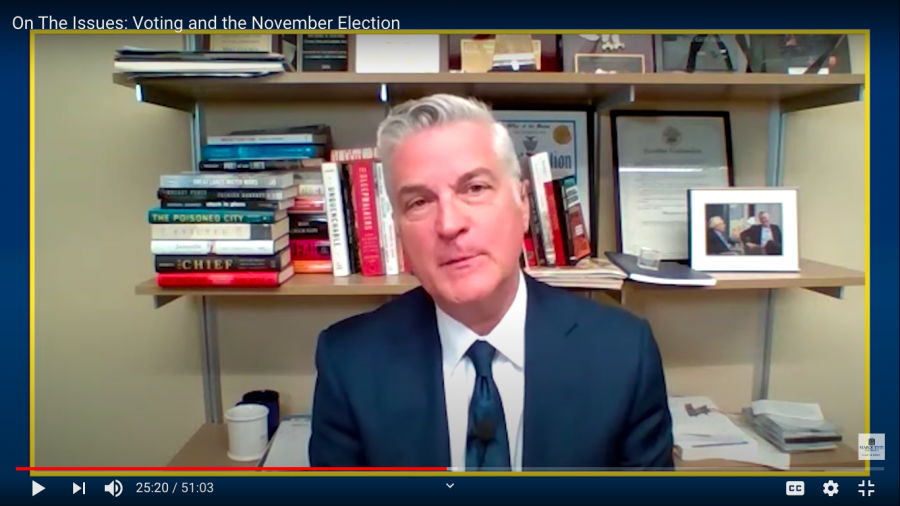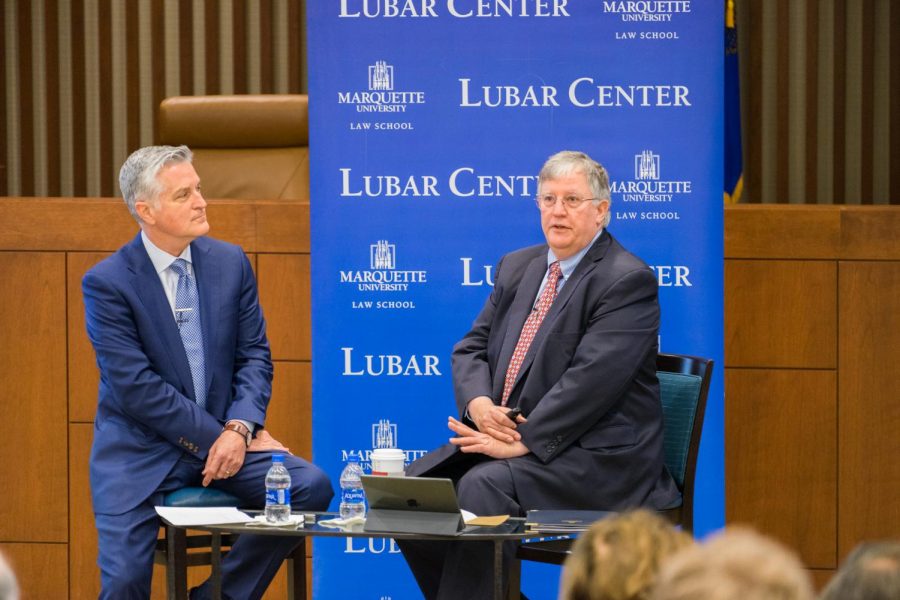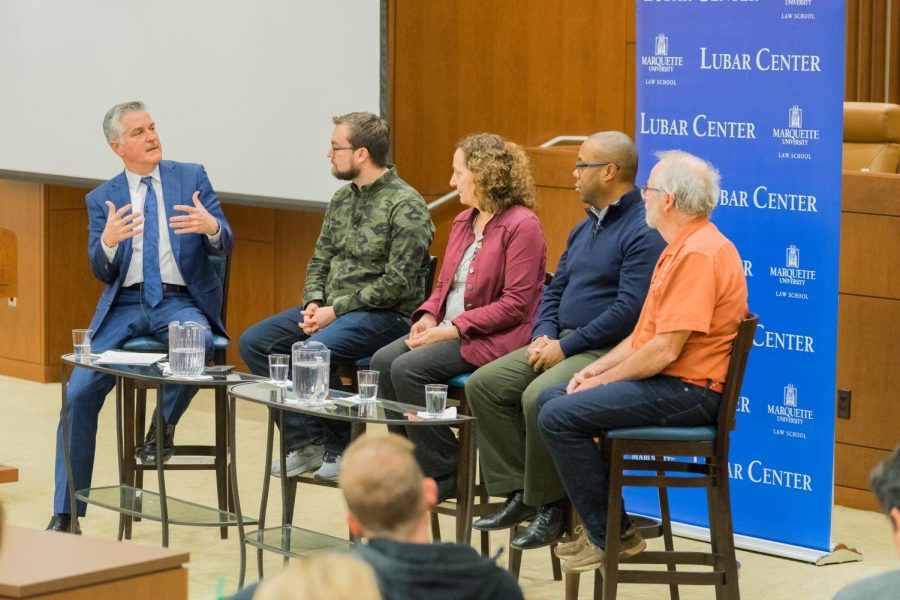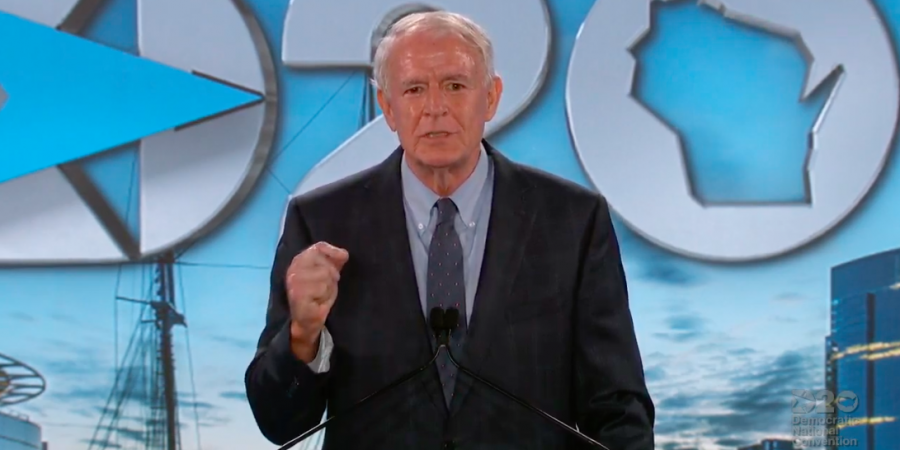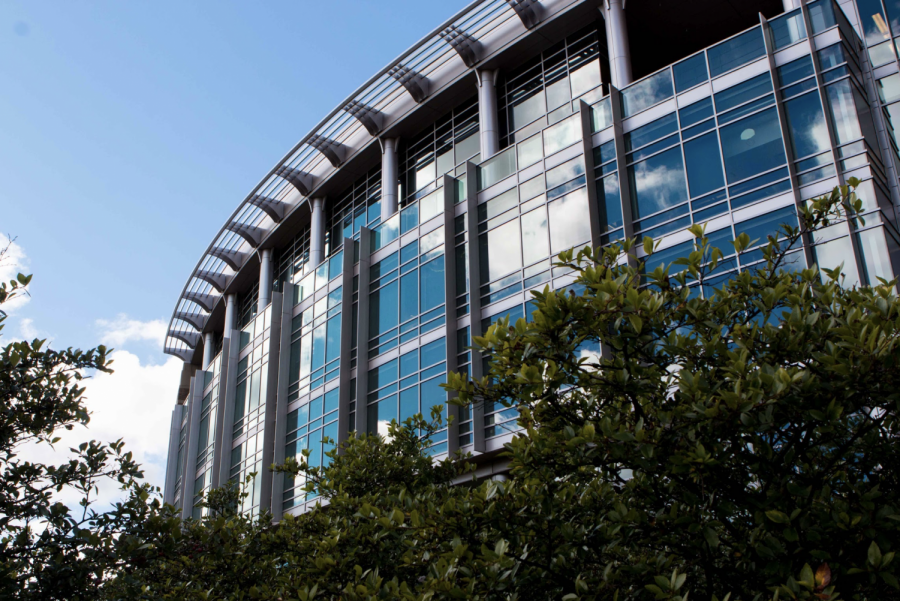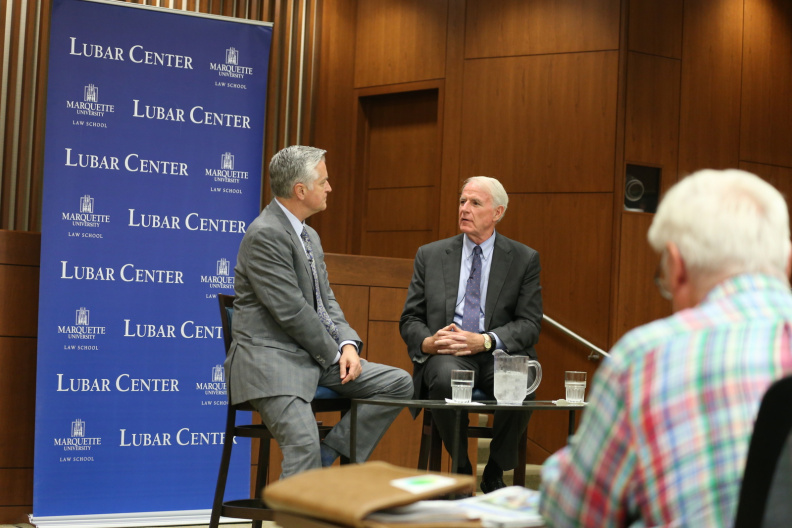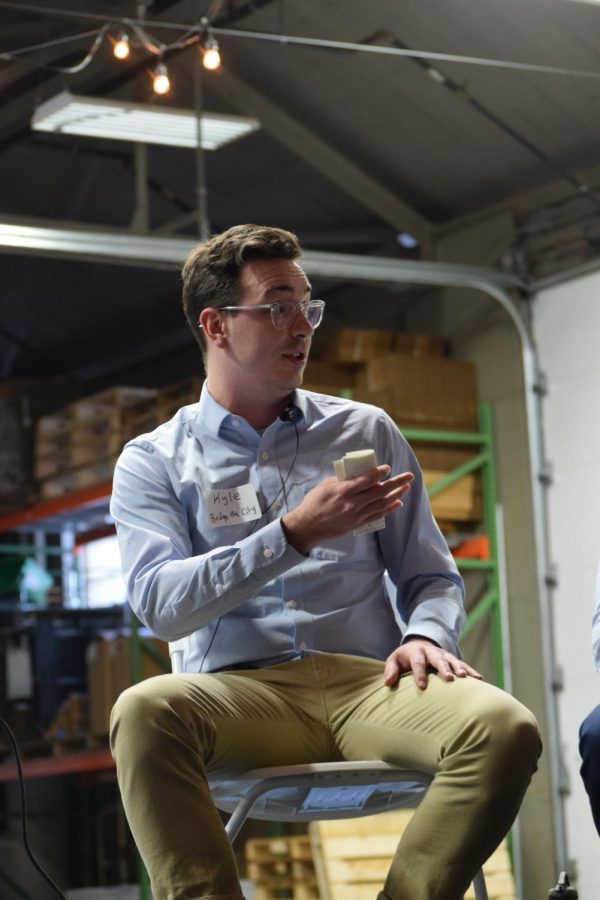Charles Franklin, a visiting professor at Marquette Law School and a polling expert, joined Mike Gousha at Eckstein Hall yesterday to discuss the latest results of the Marquette Law School Poll, which Franklin directs. Gousha is a distinguished fellow in law and public policy at the law school.
This installment of the poll, which surveyed 705 registered Wisconsin voters from April 26-29, focused mostly on the recall of Gov. Scott Walker and the democratic primary on May 8.
Milwaukee Mayor Tom Barrett, former Dane County Executive Kathleen Falk, State Sen. Kathleen Vinehout and Wisconsin Secretary of State Doug Lafollette will face off in the upcoming week for the spot to challenge Walker for governor in the recall election taking place June 5.
“We are coming into a historic election this fall,” Gousha said. “This is important.”
Franklin said the race has taken a while to unfold.
“This is a developing race in that many candidates are just entering, such as (Milwaukee Mayor Tom) Barrett,” Franklin said. “But entering the race late doesn’t seem to have hurt Barrett much.”
Barrett leads the Democratic field with 38 percent to Falk’s 21 percent. However, he is still edged out by Walker by 1 percent, 48 to 47, among registered voters.
“One thing that’s striking is that Walker is consistently getting 48 to 49 percent of the vote,” Franklin said. “We don’t usually see that consistency. People have made up their mind.”
Franklin added that Barrett is seeing a great deal of support from the Milwaukee area.
“Barrett leads across most demographics in Milwaukee,” Franklin said. “Falk, however, holds an edge among union workers and those interested in labor issues.”
The poll asked Democratic voters what issues were the most pertinent to them going into the primary. Forty-six percent of people said job creation was the most important. Defeating Walker, toning down political divisions and restoring collective bargaining rounded out the list.
Franklin discussed the role Republicans will play in the upcoming primary and whether or not they will turn out to the polls. About 17 percent of Republican respondents to the poll said that they would vote next Tuesday.
“There’s been a lot of talk about crossover votes,” Franklin said. “There is interest in whether or not Republicans will turn out to vote in the Democratic primary.”
Given the nature of Wisconsin’s politics over the past year, the polls showed an increase in political conversation and awareness among state residents.
“(More) people are talking to their family members and coworkers about politics than before,” Franklin said. “But 29 percent of people have also stopped talking to a certain person because of disagreements about politics.”
The poll also asked about the upcoming presidential race. In a matchup between former Mass. Gov. Mitt Romney and President Barack Obama, Obama holds a lead of nine points at 51 percent. Franklin added that nationally, there is movement trending toward Romney despite Obama still holding a lead.
“The take-home part would be that over the past year, Obama has held a single digit lead over Romney,” Franklin said. “Compare that to the 14 point lead he held over John McCain in 2008.”
The audience asked questions about the job creation data, political division and whether opinion has changed in regards to Walker’s John Doe scandal.
Audience member Mike Jones said the recall election will clearly be a close race, and that polling data has shown interesting trends.
“One of the things that the Walker campaign seems to want to emphasize is that the political tensions are hurting the job market,” he said.
Gousha added that while most voters seem to have made up their minds, there may be some who are still able to be persuaded before the primary and recall elections.
“It’s amazing, given the political polarization, the amount of people who have put so much thought into this,” he said.



